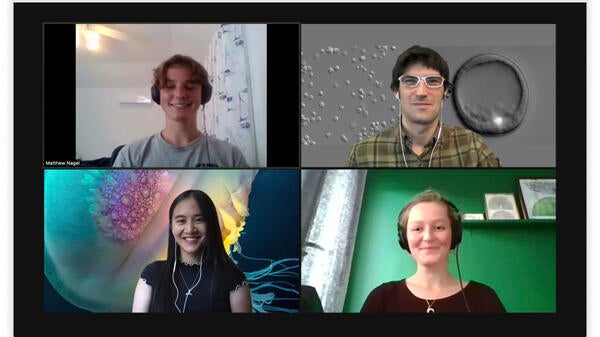Molecular biologist Julius Barsi hosted three student interns from Bermuda, Canada, and the Netherlands this summer for an introduction to systems biology. Their research, on purple sea urchin embryos, focused on differential gene expression analysis, the mechanism by which cells become specialized to conduct a specific “job” for the organism.
Shipboard Teamwork
October 25, 2021
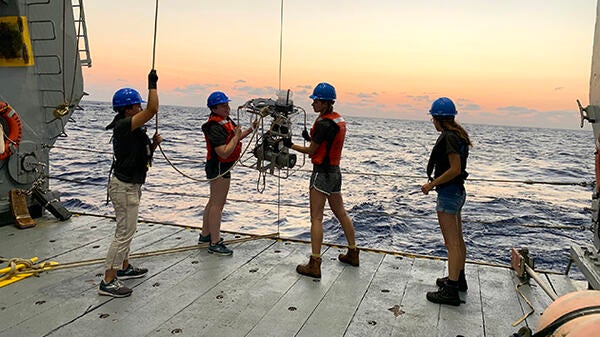
During the last two years, a team of researchers and technicians from BIOS have worked diligently alongside crew of the BIOS-operated research vessel Atlantic Explorer to maintain near-continued operations throughout the pandemic.
A Time-series Success Story
January 31, 2022
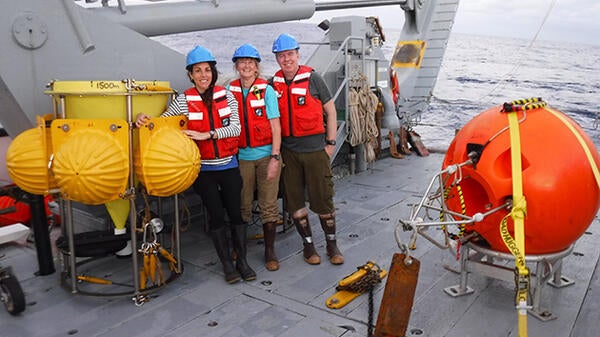
The Oceanic Flux Program (OFP), one of the world’s longest-running time-series, has received continued funding to help the oceanographic community answer ongoing questions about the connections between climate and the particle debris that sinks through the ocean’s water column. This process, called the particle flux, is a major control on the global carbon cycle and provides the fuel to support most biological processes operating within the ocean’s deep interior.
From Hermit Crab Homes to Urban Agriculture and Sustainable Cities
October 20, 2021
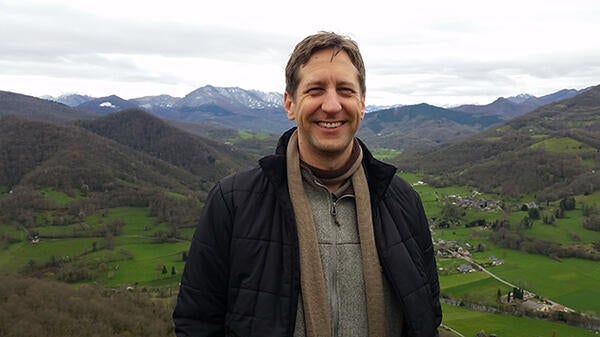
The Bermuda Program is part of a suite of five progressive education programs at BIOS known collectively as Ocean Academy. Considered the “capstone” activity for students in Ocean Academy, the Bermuda Program—now in its 45th year—offers opportunities for Bermudian students, ages 18 and older, to participate in intensive internships in the marine and atmospheric sciences alongside faculty and research staff at the Institute.
A Climate Connection for College Students
November 28, 2021
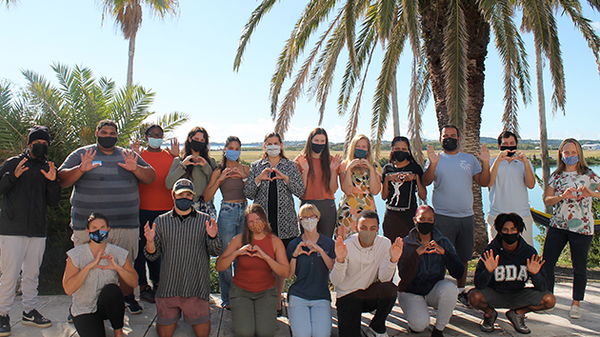
Nine Bermuda College students participated in lectures, hands-on laboratory activities, and a plankton-collecting trip during a two-day climate change workshop earlier this month through a partnership between BIOS’s Ocean Academy and the United States Consulate General in Bermuda.
‘The Smell of Disaster’
November 27, 2021
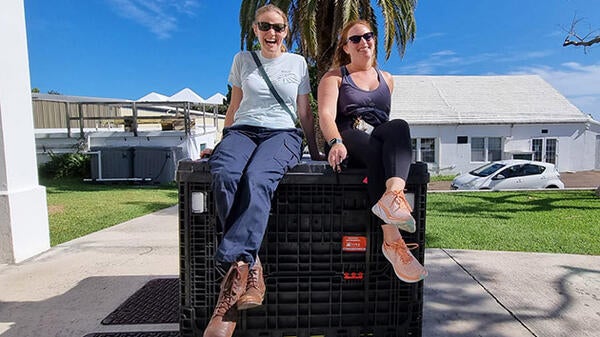
This summer, after a three-week quarantine preceding a six-week research cruise more than 200 miles offshore the United Kingdom, zooplankton ecologist Amy Maas returned to BIOS to await the arrival of more than 800 frozen zooplankton samples she had collected at sea. Preserved in vials and stored on dry ice, she expected them to arrive by expedited air mail in three days. Then she could begin detailed study of the organisms, from calculating their metabolic rates to measuring their individual and community sizes.
The Bermuda Ocean Prosperity Programme Hosts Second Webinar Featuring a Briefing from Partnership Principals
November 25, 2021
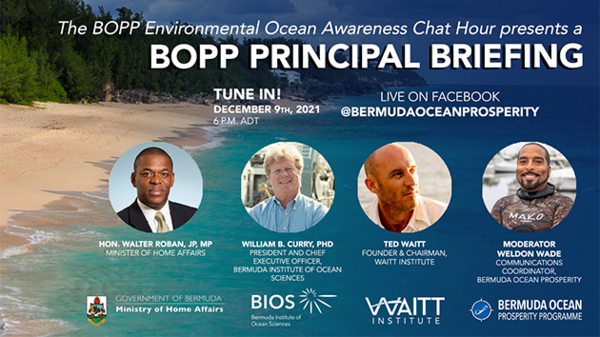
Mark your calendars to join the Bermuda Ocean Prosperity Programme (BOPP) on Thursday, December 9th at 6pm AST for the second installment of its free virtual public webinar series, B.E.A.C.H.—the BOPP Environmental Awareness Chat Hour. This series is designed to share with the broader island community a variety of topics related to BOPP, including perspectives from diverse ocean users; science-based and public processes that help BOPP balance the needs of human uses and the natural environment; and local research being conducted in coastal and offshore ecosystems.
A New View
April 13, 2017
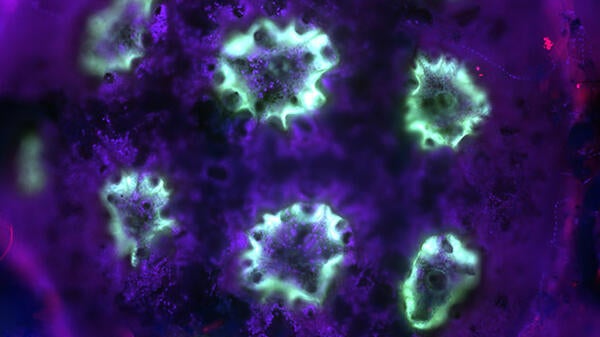
BIOS scientists gained a fresh perspective on six-month-old mustard coral larvae (shown in photo above) and tiny lionfish eggs (photo below) using a new microscope at the Institute.
Bermudian Students to Gather for BIOS’s Remotely Operated Vehicle (ROV) Challenge
April 13, 2017
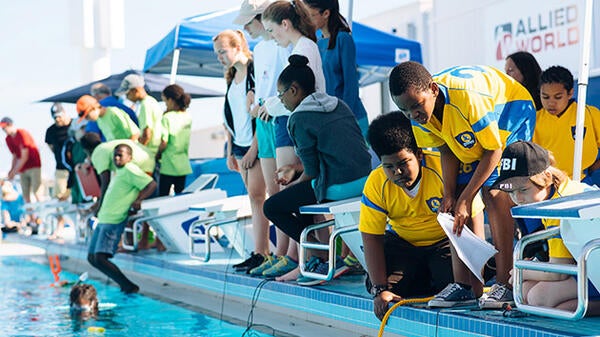
Twenty-five teams from 12 Bermuda schools and educational organizations will converge on the National Sports Centre on Saturday, April 22, for the 2017 MATE Bermuda Regional Remotely Operated Vehicle (ROV) Challenge. The program, hosted by BIOS, is part of the Mid-Atlantic Robotics IN Education Program (MARINE), with lead donor support from HSBC.
Welcoming Three New Instruments for BIOS Research
April 13, 2017
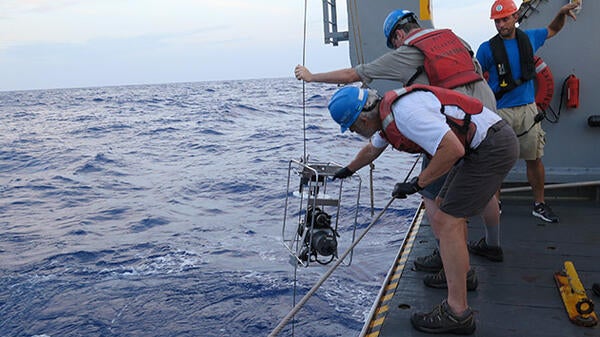
BIOS acquired three new instruments this spring to enrich investigations into the roles and interactions between microbial communities and migrating zooplankton in the Sargasso Sea.
